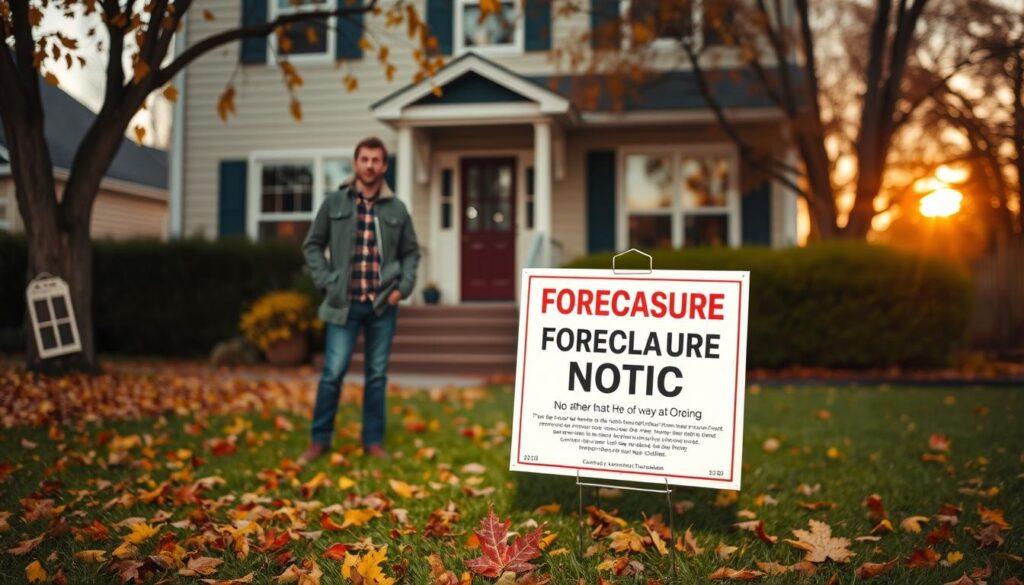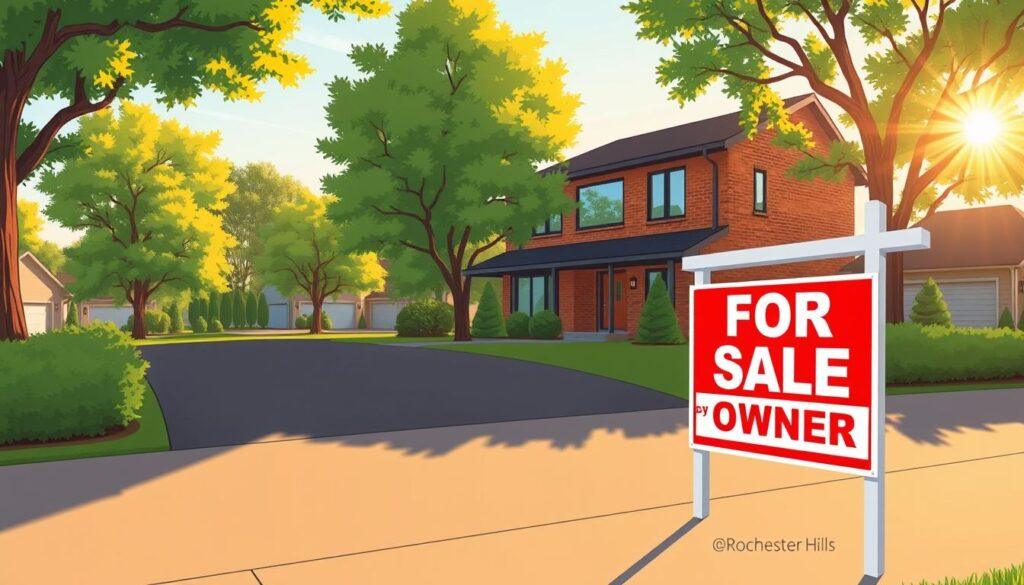Did you know waiting too long can cost you your home and financial future? For homeowners facing financial troubles, selling before foreclosure is key. It helps protect your financial health and avoids bad credit scores. Foreclosure hurts everyone involved, including banks and communities.
Knowing your options for selling before foreclosure can help. It can lead to less debt and better credit scores. In this guide, we’ll look at ways to prevent foreclosure and succeed in selling your home.
Key Takeaways
- Mortgage default happens when homeowners miss three months or more of payments.
- Homeowners usually have three to ten months to sell before foreclosure.
- Loan modifications can lower interest rates or forgive part of the loan, helping struggling homeowners.
- Keeping in touch with lenders can make the pre-foreclosure process smoother.
- Acting fast is important; being proactive can lessen credit damage and improve sale chances.
- Experienced agents are vital for pre-foreclosure sales, ensuring everything is done right.
Understanding Foreclosure and Its Consequences
The foreclosure process can be tough for homeowners. It’s important to know what foreclosure is and how it affects people. This situation impacts not just the homeowner but also the community around them.
The Definition of Foreclosure
Foreclosure happens when a lender takes back a property because the borrower can’t pay the mortgage. This legal action starts when homeowners miss payments for months. After 90 days of missed payments, a notice of default (NOD) is sent, beginning the legal process.
Impact of Foreclosure on Homeowners
Foreclosure does more than just take a home. It can badly hurt a person’s credit score, making it hard to get loans later. A foreclosure can stay on your credit report for up to seven years. This limits your financial options for a long time.
Also, the community around the foreclosed home may see property values drop. This creates economic problems for everyone nearby.
What is Pre-Foreclosure?
Pre-foreclosure is a key part of the mortgage cycle. It happens when payments are missed and before foreclosure starts. Knowing the signs of pre-foreclosure helps homeowners act early. This stage starts when a borrower is 90 days late on payments, or three missed payments.
The consequences of pre-foreclosure are serious. It’s vital to understand this process well.
Recognizing the Signs of Pre-Foreclosure
Spotting early signs of pre-foreclosure can prevent long-term financial trouble. Common signs of pre-foreclosure include:
- Missed mortgage payments
- Communication from the lender regarding payment issues
- Receiving a Notice of Default, which indicates that the mortgage is in default
- Attempting to refinance with lenders
- Increased financial strain, such as unexpected medical expenses or job loss
Acting quickly can lead to better outcomes. It may open up negotiation or alternative solutions, making the avoiding foreclosure process easier.
Timeline from Default to Foreclosure
The foreclosure timeline varies by state laws and lender practices. Here’s a general outline:
| Timeline Stage | Duration | Description |
|---|---|---|
| Default | 0 – 90 days | Homeowner becomes 90 days late on mortgage payments. |
| Pre-Foreclosure | 1 – 3 months | Homeowners may negotiate with lenders regarding loans or other solutions. |
| Foreclosure Initiation | 3 months – over 1 year | Lenders file foreclosure proceedings, may vary based on location. |
In the pre-foreclosure stage, lenders are more open to negotiations. By taking action early, homeowners can avoid foreclosure. Knowing this timeline helps make informed decisions to reduce financial loss.

Why Selling a House Before Foreclosure is Important
Selling a house before foreclosure is a big decision for homeowners in trouble. It can lead to a safer financial future. Knowing the benefits can help a lot.
Avoiding Deficiency Judgments
One key reason is to avoid deficiency judgments. If a house is sold in foreclosure and the mortgage isn’t paid off, the lender might go after the homeowner for the difference. This can be very hard on someone’s finances.
By selling before foreclosure, homeowners can pay off their debts without legal trouble. This helps avoid extra financial stress.
Minimizing Credit Score Damage
Another important reason is to protect your credit score. Foreclosure can drop your credit score by 85 to 105 points. This makes it hard to get loans later.
Selling before foreclosure can help keep your credit score better. This way, you can still get loans and achieve your goals in the future.

Options for Selling a House Before Foreclosure
Homeowners facing foreclosure have several options to sell their homes. Each option has its own benefits and challenges. It’s important to choose the best one for your situation. This way, you can avoid the bad effects of foreclosure.
Traditional Sale on the Open Market
A traditional sale can help you get the most money for your home. But, it takes a long time, which might not work if you’re facing foreclosure soon. You’ll need to list your home, find a good price, and deal with offers and conditions.
This option might not be the best if you need to sell quickly.
Short Sale Process and Requirements
A short sale means selling your home for less than what you owe on the mortgage. It’s good if your home is worth less than the mortgage. But, getting the lender’s approval can take time.
Working with investors can help you through the short sale process. They can support you during negotiations.
Utilizing Cash Buyers for Quick Sales
Selling to cash buyers is a fast option. It can close in just 5 to 7 days. Investors buy homes as they are, without needing repairs.
This option gives you a quick way to solve financial problems without the hassle of traditional sales.






